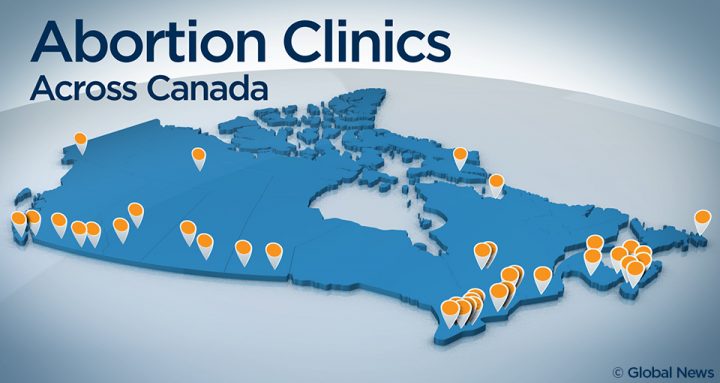It’s been a few years since a woman — whom we’ll call Joanna — made a 450 km journey across Canada for an abortion. Joanna asked to remain anonymous because she doesn’t feel safe speaking publicly about her abortion, but her ordeal, she believes, is something that needs to be shared.

Joanna was living in Fort McMurray, Alta., when she first learned she was pregnant. Right away, she says she knew she wasn’t prepared to carry the pregnancy to term.
“Physically, I was recovering from some surgeries,” Joanna said during an interview with Global News in Halifax. But there were other obstacles, too.
“Mentally, financially, and as well the father was not in the picture,” Joanna recalled.
Joanna quickly learned that an abortion wasn’t available in her community and the nearest clinic was four and a half hours away in Edmonton.
“The main problem in Canada for abortion access is what I call the urban/rural divide,” said Joyce Arthur, executive director for the Abortion Rights Coalition of Canada. “Access is pretty good to even excellent in many of the major cities, but as soon as we get outside that, access kind of plummets.”

Get breaking National news
While publicly-funded abortions are available in every province and territory across Canada, so-called “abortion deserts” — where people must travel hundreds of kilometres in order to access the service — still exist in many parts of the country.
A woman in Prince George, B.C., for example, would have to travel more than 600 km to the nearest clinic in Kelowna, while someone in Thunder Bay, Ont. is 700 km away from the nearest clinic in Winnipeg.
“People in Canada tend to think access to abortion is just a given and it’s not,” Autumn Reinhardt-Simpson said. The Edmonton woman volunteers as an abortion doula, helping Canadians access abortions.
At times, that has meant helping clients arrange travel to the U.S.
“Especially when someone goes over 24 weeks, I have facilitated getting them into the United States. It costs them an incredible amount of money — thousand and thousands of dollars — when we’re considering flights, the hotel, the procedure itself.
“It’s pretty horrific,” Reinhardt-Simpson said.
In Canada, if a person needs a late term abortion, access is extremely limited. While no national statistics are available, a recent Global News investigation found that since 2014, more than 100 women in Ontario had to travel to the U.S. for an abortion.
“The issue is a lack of providers who have the skills and training to do second-trimester abortions or even later abortions,” she added, “in cases where something has gone catastrophically wrong with the pregnancy and there’s a fatal fetal anomaly where the fetus is not going to survive after birth.”
WATCH: (June 17, 2019) Access expanded to female reproductive health services across Canada








Comments
Want to discuss? Please read our Commenting Policy first.